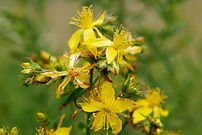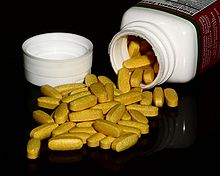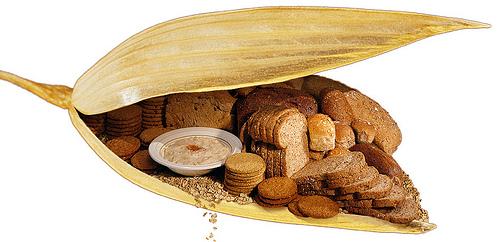 Is jasmine the next Valium substitute? Perhaps. Recent research has discovered that the scent of jasmine has the same effect on the brain and is as strong as barbiturates and the anesthetic propofol. Jasmine calms, relieves anxiety and promotes sleep. Researchers Professor Hanns Hatt and his team in Germany tested hundreds of fragrances and found jasmine and one other plant fragrance are especially good relaxants.
Is jasmine the next Valium substitute? Perhaps. Recent research has discovered that the scent of jasmine has the same effect on the brain and is as strong as barbiturates and the anesthetic propofol. Jasmine calms, relieves anxiety and promotes sleep. Researchers Professor Hanns Hatt and his team in Germany tested hundreds of fragrances and found jasmine and one other plant fragrance are especially good relaxants.
Other studies have found that the use of fragrant plant oils (essential oils), such as rose, lemon and lavender oil, can reduce stress, and the symptoms of anxiety, depression and more. This is no surprise considering the fragrant parts of plants have been used for health and healing throughout history all over the world, including China, India, North America, the Far East and the Middle East.

 May 28th, 2013
May 28th, 2013  Nyomi Graef
Nyomi Graef  Posted in
Posted in  Tags:
Tags: 
 Imagine if you often drove your car with very little engine oil. This one thing could have a huge negative impact on the car’s performance. When it comes to having happy minds, our bodies are similar. Just one thing out of balance can have a huge negative impact on our mental health — whether it’s a lack of vitamin D, omega-3 fat or sunlight, too much junk food and so on.
Imagine if you often drove your car with very little engine oil. This one thing could have a huge negative impact on the car’s performance. When it comes to having happy minds, our bodies are similar. Just one thing out of balance can have a huge negative impact on our mental health — whether it’s a lack of vitamin D, omega-3 fat or sunlight, too much junk food and so on. Michael Otto, a College of Arts & Sciences professor of psychology, says the effects of exercise on treating depression rivals antidepressants in head-to-head studies, reports Susan Seligson in her April 2010 article on the Boston University website
Michael Otto, a College of Arts & Sciences professor of psychology, says the effects of exercise on treating depression rivals antidepressants in head-to-head studies, reports Susan Seligson in her April 2010 article on the Boston University website  Kate Fraser, one of Australia’s leading medical herbalists, writes in her book Positive Health with Herbs that ginkgo extract has been claimed to be ““the most important single development in Western Herbal Medicine” in recent years. This claim is supported by the fact that, according to the World Health Organisation, (WHO), it was the most prescribed pharmaceutical in France and Germany… Such widespread use of a herbal extract by medical practitioners is unprecedented in post-war medicine.”
Kate Fraser, one of Australia’s leading medical herbalists, writes in her book Positive Health with Herbs that ginkgo extract has been claimed to be ““the most important single development in Western Herbal Medicine” in recent years. This claim is supported by the fact that, according to the World Health Organisation, (WHO), it was the most prescribed pharmaceutical in France and Germany… Such widespread use of a herbal extract by medical practitioners is unprecedented in post-war medicine.” From before the Middle Ages the delicious herb lemon balm has been used to improve mood, help heal wounds, and treat insect bites. Today lemon balm is still used for health, especially stress, anxiety, relaxation, insomnia, cold sores, shingles, and digestive problems. Lemon balm is grown in herb gardens, and in crops for medicine, cosmetics, and making furniture polish. The herb is generally considered safe, with few side effects.
From before the Middle Ages the delicious herb lemon balm has been used to improve mood, help heal wounds, and treat insect bites. Today lemon balm is still used for health, especially stress, anxiety, relaxation, insomnia, cold sores, shingles, and digestive problems. Lemon balm is grown in herb gardens, and in crops for medicine, cosmetics, and making furniture polish. The herb is generally considered safe, with few side effects. Low vitamin D has long been linked to depression. Experts now believe a lack of vitamin D might also contribute to other mental health problems such as personality disorders and post-traumatic stress disorder, according to
Low vitamin D has long been linked to depression. Experts now believe a lack of vitamin D might also contribute to other mental health problems such as personality disorders and post-traumatic stress disorder, according to  Want to be happier and healthier? Be hopeful. Dr. Allan K. Chalmers was on the right track when he said: “The grand essentials of happiness are: something to do, something to love, and something to hope for”, as studies have found that hope is a key to good health, a predictor of a meaningful existence, an indicator of athletic and academic performance and more. Those of us with high hope are likely to be happier, healthier and more successful than those of us with less hope.
Want to be happier and healthier? Be hopeful. Dr. Allan K. Chalmers was on the right track when he said: “The grand essentials of happiness are: something to do, something to love, and something to hope for”, as studies have found that hope is a key to good health, a predictor of a meaningful existence, an indicator of athletic and academic performance and more. Those of us with high hope are likely to be happier, healthier and more successful than those of us with less hope. A recent trial in Exeter found that Mindfulness-based Cognitive Therapy (MBCT) is at least as good as antidepressants at preventing relapses in depression, according to an article in Times Online. Other studies have found lower relapse rates in depression between groups of people who receive MBCT and groups who don’t.
A recent trial in Exeter found that Mindfulness-based Cognitive Therapy (MBCT) is at least as good as antidepressants at preventing relapses in depression, according to an article in Times Online. Other studies have found lower relapse rates in depression between groups of people who receive MBCT and groups who don’t. Did you know that doing some simple eye movements can stop the emotional pain from bad memories? Called Eye Movement Desensitization and Reprocessing (EMDR), it’s a key treatment for trauma used all over the world by thousands of trained therapists.
Did you know that doing some simple eye movements can stop the emotional pain from bad memories? Called Eye Movement Desensitization and Reprocessing (EMDR), it’s a key treatment for trauma used all over the world by thousands of trained therapists. I’ve been interested in having hypnosis for years but, for various reasons, I put it off. Earlier this year I decided to have weekly clinical hypnotherapy sessions with a trained psychologist. I’m glad I went. I found that it helped me achieve some of my goals, and it was very relaxing – just what I needed.
I’ve been interested in having hypnosis for years but, for various reasons, I put it off. Earlier this year I decided to have weekly clinical hypnotherapy sessions with a trained psychologist. I’m glad I went. I found that it helped me achieve some of my goals, and it was very relaxing – just what I needed. Did you know that St John’s wort is one of the most popular natural antidepressants in the United States and Canada?
Did you know that St John’s wort is one of the most popular natural antidepressants in the United States and Canada? Staying happy during winter can be a challenge for some of us, when the amount of natural sunlight reduces.
Staying happy during winter can be a challenge for some of us, when the amount of natural sunlight reduces. Can popping a vitamin pill help cure mental health problems? For people who lack vitamin B and show symptoms of mental illness as a result, this may be the case.
Can popping a vitamin pill help cure mental health problems? For people who lack vitamin B and show symptoms of mental illness as a result, this may be the case. Since the 1920s zinc has been known to play a role in mental health. Decades of research has found a link between taking zinc supplements and an improvement in the symptoms of schizophrenia, autism, ADHD and other mental health problems.
Since the 1920s zinc has been known to play a role in mental health. Decades of research has found a link between taking zinc supplements and an improvement in the symptoms of schizophrenia, autism, ADHD and other mental health problems. Did you know that many experts believe that an imbalance of neurotransmitters in our brain can cause mental health problems?
Did you know that many experts believe that an imbalance of neurotransmitters in our brain can cause mental health problems? For some of us exercise is a chore, for others it’s a joy. We all know exercise is good for us, but most of us don’t do enough for good health. Doctors estimate that between 65% and 85% of the world’s population do not exercise enough.
For some of us exercise is a chore, for others it’s a joy. We all know exercise is good for us, but most of us don’t do enough for good health. Doctors estimate that between 65% and 85% of the world’s population do not exercise enough. Are you suffering from a lack of magnesium? Chances are you could be, as many of us aren’t receiving enough from our diet. In fact magnesium deficiency is an epidemic throughout the western world. About 80% of Americans are low in it. Depression, anxiety, irritability, ADHD and nervousness are just a few of the symptoms of magnesium deficiency.
Are you suffering from a lack of magnesium? Chances are you could be, as many of us aren’t receiving enough from our diet. In fact magnesium deficiency is an epidemic throughout the western world. About 80% of Americans are low in it. Depression, anxiety, irritability, ADHD and nervousness are just a few of the symptoms of magnesium deficiency. Did you know that gluten, a common protein, is one of the causes of depression, mood swings and other mental health problems? Professor Rodney Ford, a world authority on gluten and food allergies, believes gluten “is sapping the energy and wellbeing of countless millions”, and causing mental health problems.
Did you know that gluten, a common protein, is one of the causes of depression, mood swings and other mental health problems? Professor Rodney Ford, a world authority on gluten and food allergies, believes gluten “is sapping the energy and wellbeing of countless millions”, and causing mental health problems. By now you’ve probably heard something about the wonders of omega-3 fat for improving mood. From helping overcome depression and ADHD, to treating Alzheimer’s disease and schizophrenia, some might call omega-3 fat a miracle cure for the mind.
By now you’ve probably heard something about the wonders of omega-3 fat for improving mood. From helping overcome depression and ADHD, to treating Alzheimer’s disease and schizophrenia, some might call omega-3 fat a miracle cure for the mind.
